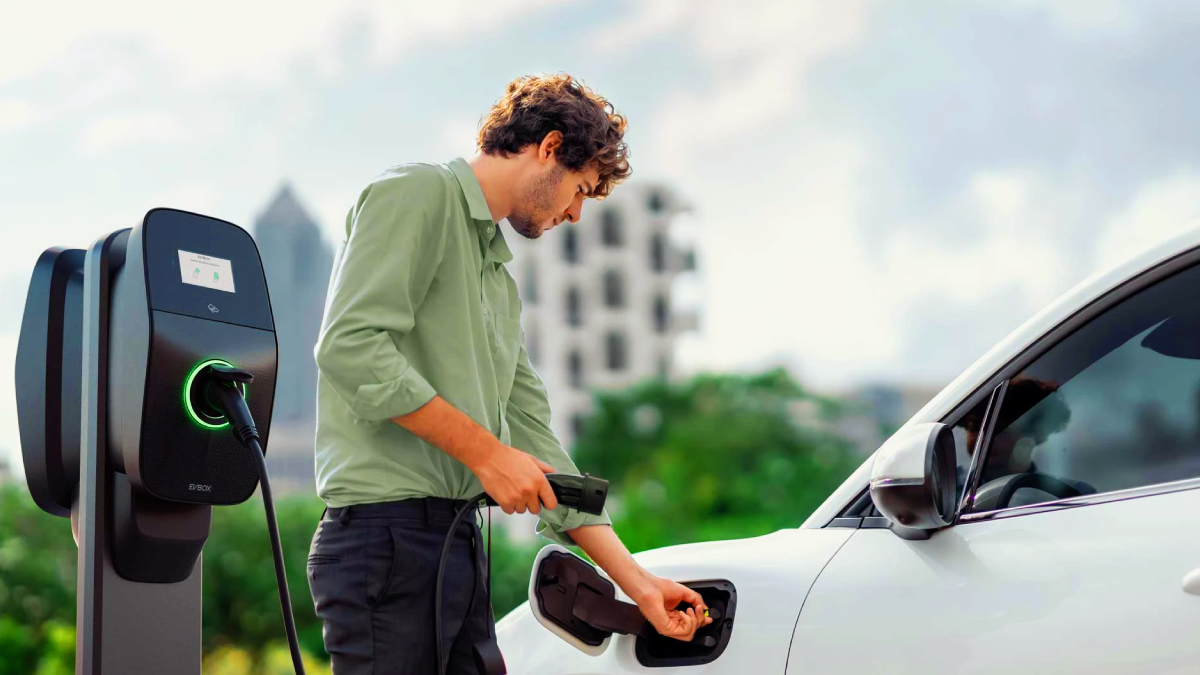
Here, you will find full knowledge about how long it takes to charge an electric car. Also, we will discuss the factors that influence the charging time and provide you with effective charging tips.
Summary
Charging an electric car takes up to 30 minutes, or more than 12 hours. It completely depends on the size of the battery, how big or small it is, and the speed of the charging point.
- An electric car with a 60kWh battery needs just under 8 hours to charge from empty to full cycle with a 7kW charging point.
- Almost every driver tops up charges instead of opting to recharge from an empty-to-full cycle.
- In most electric cars, you can add up to 100 miles of range in ~35 minutes with a 50kW fast charger.
- If your car’s battery is bigger and the charging point is slow, it will take longer to charge from empty to full.
How Much Time Does It Take to Charge an Electric Car at a Charging Station?
It can take as little as 30 minutes or less to charge a typical electric car (60 kWh battery) at a 150 kW rapid charging station from empty to full. If you use a 7 kW public charger, you can expect the same in under 8 hours and around 3 hours using a 22 kW charging-point.
A rapid charger will offer the fastest charging time at the highest cost, which is great if you’re on the road and want to continue your onward journey. If you’re in no hurry, using a lower-kW charger will be pocket-friendly and cheaper as well. You can charge your car overnight or while it is unused.
How much time does it take to charge an electric car at home?
A 7kW home charger will charge a typical 60kWh electric car battery to complete the cycle from empty to full in just under 8 hours. The accurate amount of time to fully recharge your EV battery during your sleeping period. A slower home charger rated at 3.7 kW would take around 16 hours to do the same.
22kW home chargers are now available, but they’re hardly used for this purpose. While they give faster charging than lower-rated chargers, their installation and operation need 3-phase power—something that isn’t common in residential properties and is expensive to implement.
What is top-up charging?
Most of the drivers plug in their electric car whenever they park and charge it, be it at home overnight or in the middle of the day at the supermarket, gym, or workplace. This is called top-up charging, where there is no completion of the empty to full cycle.
- Instead of letting the battery run empty and waiting while it fully recharges, drivers make use of the time their car is parked (which is about 95% of the time) to keep the battery topped up.
- Public and workplace charging points typically range from 7 kW to 22 kW, making them decent for top-up charging. Research about how to access public charging is under our eye.
- Collaborating daytime top-up charging with overnight charging at home is a beneficial way to keep your electric car charged and ready to go.
How much range do you get in an hour of charging?
If you are an electric vehicle driver, it’s beneficial to know how many miles of range you are getting during the charging time of your vehicle so you know you can get to your next destination.
Analysis:
- The range per hour completely depends on your car’s efficiency. Small full-battery electric cars (e.g., Renault Zoe) are the most efficient and get 30 miles of range per hour charging at 7 kW.
- The biggest full-battery electric cars (e.g., the Audi e-tron Quattro) are heavier and get ~20 miles of range per hour at 7 kW. Plug-in hybrids are lower in efficiency than full-battery electric vehicles.
- Car efficiency also depends on environmental factors such as weather, climatic conditions, or temperature. This means electric cars are more efficient and have a slightly better range per hour in the summer than they do in the winter.
Factors that affect charging speed
Following are the factors that affect the time it takes to charge an electric vehicle.
- Size of battery: The bigger your vehicle’s battery capacity (measured in kWh), the longer it will take to charge.
- State of battery (empty vs. full): If you are charging from empty, it will take longer to charge than if you are topping up from 50%.
- Maximum charging rate of the vehicle: charging is dependent upon a vehicle’s battery at the maximum charge rate the vehicle can accept. Let’s take an example: if your vehicle’s maximum charge capacity is 7 kW,it is unable to tolerate a 22 kW chargepoint.
- Maximum charging rate of chargepoint: The time it takes to charge will also be limited by the maximum charging rate of the chargepoint you are using. For example, even if your vehicle can charge at 11 kW, it will only charge at 7 kW on a 7 kW chargepoint.
- Environmental factors: A cool temperature can make it take a little longer to charge,especially when using a rapid charger. Colder temperatures also mean vehicles are less efficient, so fewer miles are added per charge.
